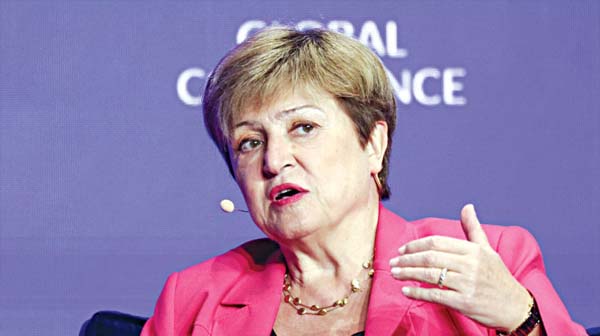Wednesday, 25 February 2026, 04:40 AM
October 22, 2025
 Jewellers have cut gold prices by Tk 8,386 per bhori, thanks to a drop in the rates of pure gold in the local market.
From tomorrow, the price of each bhori (11.664 grammes) of 22-carat gold ornaments will be Tk 208,995, down from Tk 217,381.
The Bangladesh Jewellers Association took the decision to decrease gold prices in a meeting today, the association said in a press release.
On October 19, gold prices surged to yet another historic peak, reaching Tk 217,381 per bhori (approximately 11.664 grammes).
Prices of the precious metal in Bangladesh have been rising steadily, setting new records almost every week.
In September alone, the price of 22-carat gold rose by more than Tk 16,000 per bhori.
Industry insiders attribute the surge mainly to the international bullion market, the devaluation of the taka, economic uncertainty, and high inflation.
Although Bangladesh does not import significant volumes of gold, domestic prices remain closely aligned with global trends.
According to the Gold Policy 2018, annual domestic demand in Bangladesh stands between 20 and 40 tonnes.
Meanwhile, around 80 percent of the country's gold demand is met through smuggling, leading to substantial revenue losses for the government, said industry people.
During Bangladesh's Liberation War, gold was sold for Tk 170 per bhori. Within ten years, it reached Tk 3,750 per bhori. By 2000, it hit Tk 6,900, and by 2010, Tk 42,165.
In January 2018, gold crossed Tk 50,000 per bhori for the first time. Five years later, in July 2023, it hit Tk 100,000. After further jumps, it reached Tk 150,000 in February 2025, and later surged past Tk 200,000 per bhori....
Jewellers have cut gold prices by Tk 8,386 per bhori, thanks to a drop in the rates of pure gold in the local market.
From tomorrow, the price of each bhori (11.664 grammes) of 22-carat gold ornaments will be Tk 208,995, down from Tk 217,381.
The Bangladesh Jewellers Association took the decision to decrease gold prices in a meeting today, the association said in a press release.
On October 19, gold prices surged to yet another historic peak, reaching Tk 217,381 per bhori (approximately 11.664 grammes).
Prices of the precious metal in Bangladesh have been rising steadily, setting new records almost every week.
In September alone, the price of 22-carat gold rose by more than Tk 16,000 per bhori.
Industry insiders attribute the surge mainly to the international bullion market, the devaluation of the taka, economic uncertainty, and high inflation.
Although Bangladesh does not import significant volumes of gold, domestic prices remain closely aligned with global trends.
According to the Gold Policy 2018, annual domestic demand in Bangladesh stands between 20 and 40 tonnes.
Meanwhile, around 80 percent of the country's gold demand is met through smuggling, leading to substantial revenue losses for the government, said industry people.
During Bangladesh's Liberation War, gold was sold for Tk 170 per bhori. Within ten years, it reached Tk 3,750 per bhori. By 2000, it hit Tk 6,900, and by 2010, Tk 42,165.
In January 2018, gold crossed Tk 50,000 per bhori for the first time. Five years later, in July 2023, it hit Tk 100,000. After further jumps, it reached Tk 150,000 in February 2025, and later surged past Tk 200,000 per bhori....
October 11, 2025
 The global economy is doing better than expected, even as it faces prolonged uncertainty and underwhelming medium-term growth prospects, the head of the IMF said Wednesday.
The world economy is doing "better than feared, but worse than we need," International Monetary Fund Managing Director Kristalina Georgieva told reporters in Washington.
She added that the Fund now expects global growth to slow "only slightly this year and next," propped up by better-than-expected conditions in the United States, and among some other advanced, emerging market and developing countries.
Georgieva's remarks came ahead of next week's gathering of finance ministers and central bank governors at the World Bank and the IMF in Washington.
Trade is once again likely to dominate the agenda at the annual meetings, following US President Donald Trump's decision earlier this year to unleash sweeping tariffs against many trading partners.
"All signs point to a world economy that has generally withstood acute strains from multiple shocks," Georgieva said, pointing to "improved policy fundamentals," the adaptability of the private sector, lower-than-expected tariffs, and supportive financial conditions. "The world has avoided a tit-for-tat slide into trade war -- so far," she added.
She noted that the average US tariff rate has fallen from 23 percent in April to 17.5 percent today, while the US effective tariff rate of around 10 percent remains "far above" the rest of the world.
But, she warned, the full effect of those tariffs "is still to unfold," adding that the resilience of the world economy has yet to be "fully tested."
Against this backdrop, the Fund still expects global growth to remain at roughly three percent over the medium term, in line with previous forecasts -- below the 3.7 percent, on average, seen before the Covid-19 pandemic. "Global growth patterns have been changing over the years, notably with China decelerating steadily while India develops into a key growth engine,"...
The global economy is doing better than expected, even as it faces prolonged uncertainty and underwhelming medium-term growth prospects, the head of the IMF said Wednesday.
The world economy is doing "better than feared, but worse than we need," International Monetary Fund Managing Director Kristalina Georgieva told reporters in Washington.
She added that the Fund now expects global growth to slow "only slightly this year and next," propped up by better-than-expected conditions in the United States, and among some other advanced, emerging market and developing countries.
Georgieva's remarks came ahead of next week's gathering of finance ministers and central bank governors at the World Bank and the IMF in Washington.
Trade is once again likely to dominate the agenda at the annual meetings, following US President Donald Trump's decision earlier this year to unleash sweeping tariffs against many trading partners.
"All signs point to a world economy that has generally withstood acute strains from multiple shocks," Georgieva said, pointing to "improved policy fundamentals," the adaptability of the private sector, lower-than-expected tariffs, and supportive financial conditions. "The world has avoided a tit-for-tat slide into trade war -- so far," she added.
She noted that the average US tariff rate has fallen from 23 percent in April to 17.5 percent today, while the US effective tariff rate of around 10 percent remains "far above" the rest of the world.
But, she warned, the full effect of those tariffs "is still to unfold," adding that the resilience of the world economy has yet to be "fully tested."
Against this backdrop, the Fund still expects global growth to remain at roughly three percent over the medium term, in line with previous forecasts -- below the 3.7 percent, on average, seen before the Covid-19 pandemic. "Global growth patterns have been changing over the years, notably with China decelerating steadily while India develops into a key growth engine,"...
February 28, 2024
 Special Correspondent: Agricultural Extension Program in Tarakanda Upazila of Mymensingh in Light of Modern Agricultural Technology. The upazila agriculture extension department started the smart generation, smart agriculture activities by expressing agreement to the construction of smart Bangladesh of the current government.
In continuation of this, the upazila agriculture department is providing regular training to farmers with the aim of increasing the intensity of crops, best use of fallow land, production of safe vegetables free of toxins. Not only that, about 700 'family nutrition garden' exhibitions are underway in 10 unions of the upazila to meet the demand of family vegetables to produce poison-free vegetables in the home yard. Upazila agricultural officials are playing a role in creating new entrepreneurs in the agricultural sector by regular field visits, encouragement and advice.
Apart from this, the Department of Agriculture took the initiative to train the farmers about the mechanization of agriculture, including the protection of the environment and the techniques of modern agricultural production through yard meetings. And the green classroom is one of the parts of this program. Not only that, agriculture gallery and environment diary were started to interest the visitors and service users in agriculture and environment.
When asked about this, Sakhawat Hossain Khan, a farmer of Gohailkandi village of Tarakanda Union, said, I have benefited financially by cultivating vegetables on the banks of seven ponds on the advice of agricultural officials.
Matiur Rahman, deputy assistant agricultural officer of Kamaria block, said, "We are constantly encouraging farmers to cultivate under modern agricultural technology.
Deputy Assistant Plant Protection Officer Md. Anishur Haque said that the steps taken by us are benefiting from the working environment of the department to the common farmers.
Upazila Agriculture Officer Arunima Kanchi Suprabha...
Special Correspondent: Agricultural Extension Program in Tarakanda Upazila of Mymensingh in Light of Modern Agricultural Technology. The upazila agriculture extension department started the smart generation, smart agriculture activities by expressing agreement to the construction of smart Bangladesh of the current government.
In continuation of this, the upazila agriculture department is providing regular training to farmers with the aim of increasing the intensity of crops, best use of fallow land, production of safe vegetables free of toxins. Not only that, about 700 'family nutrition garden' exhibitions are underway in 10 unions of the upazila to meet the demand of family vegetables to produce poison-free vegetables in the home yard. Upazila agricultural officials are playing a role in creating new entrepreneurs in the agricultural sector by regular field visits, encouragement and advice.
Apart from this, the Department of Agriculture took the initiative to train the farmers about the mechanization of agriculture, including the protection of the environment and the techniques of modern agricultural production through yard meetings. And the green classroom is one of the parts of this program. Not only that, agriculture gallery and environment diary were started to interest the visitors and service users in agriculture and environment.
When asked about this, Sakhawat Hossain Khan, a farmer of Gohailkandi village of Tarakanda Union, said, I have benefited financially by cultivating vegetables on the banks of seven ponds on the advice of agricultural officials.
Matiur Rahman, deputy assistant agricultural officer of Kamaria block, said, "We are constantly encouraging farmers to cultivate under modern agricultural technology.
Deputy Assistant Plant Protection Officer Md. Anishur Haque said that the steps taken by us are benefiting from the working environment of the department to the common farmers.
Upazila Agriculture Officer Arunima Kanchi Suprabha...